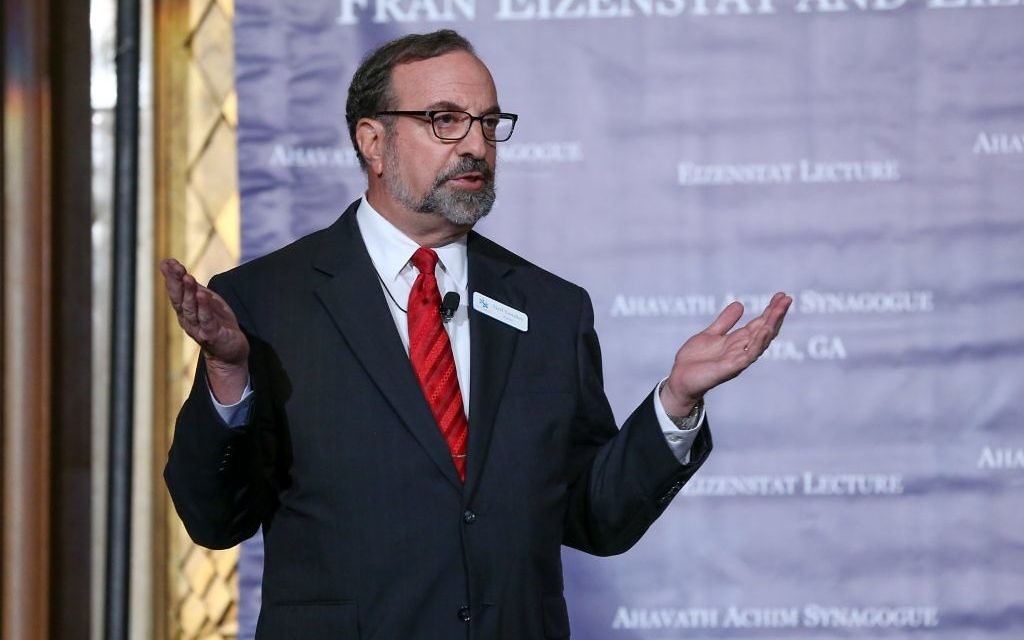Ahavath Achim: Flabby Souls, Stomachs Require Internal Focus
Ahavath Achim's Rabbi Neil Sandler gives his thoughts ahead of Rosh Hashanah 5778.
I don’t want to be “buff.” I just want to have a flatter stomach!
Sometimes I look at one of those guys with a flat stomach, and I put my head on top of his body. Then, as if my wife, Susan, is standing right next to me at that moment, I hear her in my head, saying, “Neil, you’ve got to do something about that stomach!”
We have entered the month of Elul, the final month of our Jewish calendar, and it is time to reflect on our lives and actions, especially in the recent past. It is time to recognize errors and wrongdoing, apologize when we recognize that we have wronged someone, and make changes, if necessary, in our lives. Most of those changes are probably far more significant than a flatter stomach — and they are just as hard to make.
Get The AJT Newsletter by email and never miss our top stories Free Sign Up
Rabbi David Wolpe has written, “Elul calls us to be deep-sea divers into our souls. Only by apprehending who we are can we shape real hopes about who we might become.”
Rabbi Wolpe captures a truth that many of us ignore.
The upcoming High Holidays are potentially about a lot of things. But primarily they provide us with an opportunity for reflection and change. Personal change calls upon us to have a clear picture, not only of the desired change, but also of its impact on others and on us. What will we look like after we make that change, and why is that outcome desirable enough for us to put forth the effort to accomplish it?
When we have that new outcome in mind, we can begin to “shape real hopes about who we might become.”
Perhaps it is not difficult to see that desired change in ourselves. The tough part, as Rabbi Wolpe hints, lies in “apprehending who we are.”
What do my actions say about me and my priorities now? If I need to make changes, what does that fact say about me?
Most of us (all of us, I hope) are good people. Our errors and acts of wrongdoing are just that; such isolated acts do not define who we genuinely are.
However, frequent or consistent actions or inaction say much more about us, our nature, and, maybe, our character than we care to admit.
Not infrequently do I see people (including myself) who say something is a priority or an important value in their lives, but whose actions seem to belie that truth. To “apprehend who we are” in such moments can be really tough!
After all, when there is a gap dividing our stated priorities, values and actions, recognizing that gap and addressing it is often very difficult. No one wants to admit such shortcomings, and few of us actually do so.
To be honest, I am not certain how to help people confront this reality when they do recognize it. I am not even certain how to help myself.
But this I do know: To fully reflect the divine image within us, each of us must learn to do what Rabbi Wolpe counsels. We must truly apprehend (and perhaps confront) who we are. Then we may change and grow.
While our tradition offers a clear paradigm for teshuvah — recognizing our wrongdoing, making amends and genuinely changing — it doesn’t specifically tell us how to understand who we are in order to shape what we may become. It is my hope that each of us will take some quiet time as we approach the High Holidays and then celebrate them to give that challenge some thought.
I wish you and all your loved ones a happy, healthy and sweet new year. Shana tova!





comments